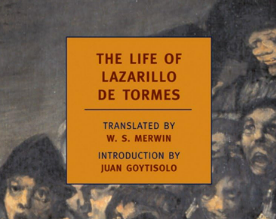Chapter VII: What Happened to Lazaro on the Way to the Tagus River
byChapter VII: What Happened to Lazaro on the Way to the Tagus River begins with a moment that nearly claims Lazaro’s life, only to turn unexpectedly in his favor. After falling into a large cask of water near the riverbanks, he is believed to be dead by a group of fishermen. Without checking his condition, they lift the barrel with the intention of disposing of it and him along the river. As the cold water shocks his system and the motion jostles him awake, Lazaro lets out a startled cry. The fishermen panic, assuming they’ve resurrected a ghost, and flee the scene. Their commotion draws the attention of night guards, who investigate and discover Lazaro alive but soaked and furious. The fishermen are arrested, and Lazaro is pulled from the water not just alive but accidentally saved by those who had planned to dump him.
What follows is a scene of both absurdity and satire as Lazaro is brought before local officials, drenched and bruised, to explain the confusion. The fishermen, now shamed and frightened, invent excuses to escape punishment, each version wilder than the last. Lazaro’s wife appears at the trial but pretends not to recognize him, claiming she believed him long dead. The archpriest, summoned reluctantly, confirms Lazaro’s identity but tries to downplay their connection. Lazaro, watching this unfold, seizes control of the narrative with his wit and sarcasm, pointing out the ridiculousness of every lie and contradiction. The trial becomes a farce, exposing the hypocrisy of everyone involved. When the dust settles, the court fines the fishermen and confiscates their goods, awarding much of it to Lazaro for the injustice and harm caused.
The windfall changes Lazaro’s situation dramatically. For the first time in years, he has money in his hands and a chance to live without begging or humiliation. He uses it wisely at first, purchasing clean clothes, better food, and modest accommodations. Walking through town with a refreshed appearance, he is mistaken for someone of importance, and doors previously closed begin to open. Yet, Lazaro remains sharply aware of how quickly things can turn. His brief rise feels like standing on thin ice—pleasant, but unstable. Even as he enjoys the benefits of his fortune, he cannot forget that just days before, he was nearly tossed into the river like refuse.
With his new resources, Lazaro attempts to reconcile with his wife, but the reunion proves strained. She has already found another arrangement and treats his return as an inconvenience rather than a relief. Lazaro confronts her, not with anger, but with resignation, recognizing that their bond was never built on love or loyalty. Their exchange reflects a deeper truth about the shifting alliances people form in pursuit of comfort. Disappointed but not destroyed, Lazaro chooses to redirect his focus. He decides to put aside illusions and concentrate on what matters: securing a future for the daughter he hopes will rise above the life he has known.
This choice marks a change in Lazaro’s character. Instead of chasing dignity through status or romance, he turns his energy toward stability. The irony of gaining fortune through misfortune isn’t lost on him, and he treats the moment with cautious appreciation. His reflections touch on the nature of pride, the illusion of control, and the strange way fortune favors the least expected. Lazaro doesn’t romanticize his story; he shares it to reveal how unpredictable life can be, especially for someone living at society’s edge. He recognizes that while money can buy respect, it cannot guarantee trust, affection, or peace of mind.
Through this chaotic yet enlightening chapter, Lazaro’s journey once again mirrors the unpredictability of fate. Near-death becomes new life. A punishment becomes a gift. And false friends reveal themselves in times of crisis. These shifts, while comical in tone, carry a deeper warning: that survival often depends not on strength or virtue but on sheer unpredictability. Lazaro, ever the realist, continues forward with humor and clarity, understanding that his story is not just his own—it belongs to every person navigating the strange balance between ruin and relief.

